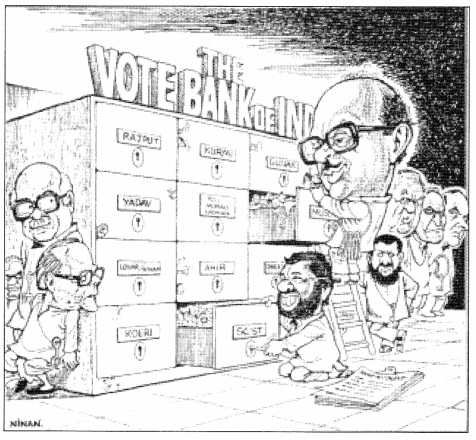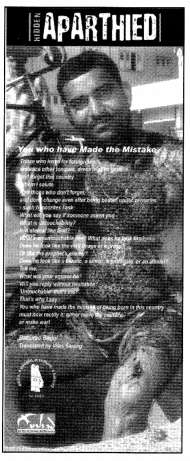Check the below NCERT MCQ Questions for Class 10 Civics Chapter 4 Gender Religion and Caste with Answers Pdf free download. MCQ Questions for Class 10 Social Science with Answers were prepared based on the latest exam pattern. We have Provided Gender Religion and Caste Class 10 Civics MCQs Questions with Answers to help students understand the concept very well. https://mcqquestions.guru/mcq-questions-for-class-10-civics-chapter-4/
Gender Religion and Caste Class 10 MCQs Questions with Answers
Choose the correct option:
Gender Religion And Caste Class 10 MCQ Question 1.
What is the percentage of Hindus in India, as per the 2001 Census?
(a) 13.4
(b) 80.5
(c) 90.2
(d) 91
Answer
Answer: (b) 80.5
Class 10 Civics Chapter 4 MCQ With Answers Question 2.
Family laws deal with
(a) marriage and divorce
(b) adoption
(c) inheritance
(d) all of the above
Answer
Answer: (d) all of the above
Gender Caste And Religion Class 10 MCQ Question 3.
In India, the representation of women in legislature has been
(a) moderate
(b) high
(c) low
(d) very low
Answer
Answer: (d) very low
Gender Religion And Caste MCQs Question 4.
The system where father is the head of the family is called
(a) hierarchy
(b) matriarchy
(c) patriarchy
(d) monarchy
Answer
Answer: (c) patriarchy
Gender Religion And Caste MCQ Question 5.
Jotiba Phule was a/an
(a) social reformer
(b) political leader
(c) educationist
(d) environmentalist
Answer
Answer: (a) social reformer
MCQ Of Chapter Gender Religion And Caste Class 10 Question 6.
Which among the following statements about India’s Constitution is wrong? It
(a) prohibits discrimination on grounds of religion.
(b) gives official status to one religion.
(c) provides to all individuals freedom to profess any religion.
(d) ensures equality of citizens within religious communities.
Answer
Answer: (b) gives official status to one religion.
Class 10 Civics Chapter 4 MCQ With Answers In Hindi Question 7.
When we speak of gender divisions, we usually refer to:
(a) Biological difference between men and women
(b) Unequal roles assigned by the society to men and women
(c) Unequal child sex ratio
(d) Absence of voting rights for women in democracies.
Answer
Answer: (b) Unequal roles assigned by the society to men and women
MCQ On Gender Religion And Caste Class 10 Question 8.
The distinguishing feature of communalism is:
(a) Followers of a particular religion must belong to one community.
(b) Communalism leads to the belief that people belonging to different religions can live as equal citizens within one nation.
(c) A communal mind does not lead to quest for political dominance of one’s own religious community.
(d) A secular constitution is sufficient combat communalism.
Answer
Answer: (a) Followers of a particular religion must belong to one community.
Question 9.
Which leaders worked for the elimination of caste system in India?
(a) Jotiba Phule, Dr. B.R. Ambedkar, Mahatma Gandhi and Periyar Ram as warn Naicker
(b) Raja Ram Mohun Roy, Dr. B.R. Ambedkar and Mahatma Gandhi
(c) Jotiba Phule, Periyar Ramaswami Naicker and Mahatma Gandhi
(d) Swami Vivekanand, Jotiba Phule and Raja Ram Mohan Roy
Answer
Answer: (a) Jotiba Phule, Dr. B.R. Ambedkar, Mahatma Gandhi and Periyar Ram as warn Naicker
Question 10.
“A woman or a man who believes in equal rights and opportunities for men and women.” Select the correct option for the definition.
(a) Feminist
(b) Patriarchy
(c) Caste hierarchy
(d) Social change
Answer
Answer: (a) Feminist
Question 11.
What step taken to provide representation to women in Panchayats and Municipalities?
(a) Reservation for election to half of the seats for women
(b) Appointment of 1/3 women members
(c) Reservation for election to 1/3 of the seats for women
(d) None of the above
Answer
Answer: (c) Reservation for election to 1/3 of the seats for women
Explanation:
Women’s organisations and activists have been demanding a similar reservation of at least one-third of seats in the Lok Sabha and State Assemblies for women.
Question 12.
In which of these categories of work do you think less time is spent by men?
(a) Household and related work
(b) Sleep, self-care, reading etc.
(c) Income-generating work
(d) Talking and gossiping
Answer
Answer: (a) Household and related work
Explanation:
Household and related work are the categories of work in which less time is spent by men.
Question 13.
Indian society is of which type?
(a) A matriarchal society
(b) A patriarchal society
(c) A fraternal society
(d) None of these
Answer
Answer: (b) A patriarchal society
Explanation:
In our country, women still lag much behind men despite some improvement since Independence. Ours is still a male dominated, patriarchal society. Women face disadvantage, discrimination and oppression.
Question 14.
What is the result of political expression of gender division?
(a) Has helped to improve women’s role in public life
(b) Has provided a superior status to women
(c) The position remains the same, as it was
(d) None of the above
Answer
Answer: (a) Has helped to improve women’s role in public life
Explanation:
The result of political expression of gender division has helped to improve women’s role in public life.
Question 15.
What is mean by the term ‘Feminist’?
(a) Having the qualities considered typical of women.
(b) A person who believes in equal rights and opportunities for women and men.
(c) The belief that men and women are equal.
(d) Men who look like women.
Answer
Answer: (b) A person who believes in equal rights and opportunities for women and men.
Explanation:
Feminist is a woman or a man who believes in equal rights and opportunities for women and men.
Question 16.
Which of these matters deal with the ‘Family Laws’?
(a) Marriage and divorce
(b) Adoption
(c) Inheritance
(d) All of these
Answer
Answer: (d) All of these
Explanation:
Family laws: Those laws that deal with family related matters such as marriage, divorce, adoption, inheritance, etc. In our country, different family laws apply to followers of different religions.
Question 17.
Which of these is true about the most ugly form of communalism?
(a) Communal violence
(b) Riots
(c) Massacre
(d) All the above
Answer
Answer: (d) All the above
Explanation:
Sometimes communalism takes its most ugly form of communal violence, riots and massacre. India and Pakistan suffered some of the worst communal riots at the time of the Partition.
Question 18.
What is leading to the breakdown of caste hierarchy?
(a) Large-scale urbanisation
(b) Growth of literacy and education
(c) Occupational mobility
(d) All of the above
Answer
Answer: (d) All of the above
Explanation:
With economic development, large scale urbanisation, growth of literacy and education, occupational mobility and the weakening of the position of landlords in the villages, the old notions of caste hierarchy are breaking down.
Question 19.
The percentage of elected women members in the Lok Sabha has never reached what per cent of its total strength?
(a) 25%
(b) 15%
(c) 10%
(d) 5%
Answer
Answer: (c) 10%
Explanation:
The percentage of elected women members in the Lok Sabha has never reached even 10 per cent of its total strength.
Question 20.
In some places in India, by how much the child sex ratio has fallen to as low as?
(a) 927
(b) 840
(c) 820
(d) 800
Answer
Answer: (d) 800
Explanation:
Sex-selective abortion led to a decline in child sex ratio (number of girl children per thousand boys) in the country to merely 914. In some part of India this ratio has fallen below 850 or even 800 in some places.
Picture-based Questions:
Question 1.
Look at the following cartoon taken from the NCERT Textbook Page 53 and answer the question that follow:

Answer
Answer:
No. They are not right in anyway. They should be above caste feelings and try their best in establishing a casteless society. Needless to say, that if caste is the base of society and election, it will only hamper the growth of the country. Political leaders should not do anything that undermines the value of democracy. They should be broad-minded and do work for the welfare of the entire nation.
Question 2.
Do you think that political leaders are right to treat people belonging to a caste as ‘vote banks’?
Look at the following picture taken from the NCERT Textbook Page 54 and answer the question that follow:

What was aparthied? How was it oppressive for the blacks in South Africa?
Answer
Answer:
Aparthied was a former policy of racial segregation in South Africa. The White Europeans imposed this system on South Africa. This system was very oppressive for the blacks as it divided the people and labelled them on the basis of their skin colour. The white rulers treated the blacks and other non-whites as inferiors. They were forbidden from living in white areas.
They did not have voting rights. Trains, buses, hotels, hospitals, beaches, swimming pools were all separate for the whites and the blacks. The schools and hospitals meant for the blacks did not have proper facilities. Blacks could not even protest against the terrible treatment. Thus, they were forced to lead a very tough and miserable life.
It was only due to the efforts of Nelson Mandela, that freed them from such an oppressive system.
We hope the given NCERT MCQ Questions for Class 10 Civics Chapter 4 Gender Religion and Caste with Answers Pdf free download will help you. If you have any queries regarding Gender Religion and Caste CBSE Class 10 Civics MCQs Multiple Choice Questions with Answers, drop a comment below and we will get back to you soon.